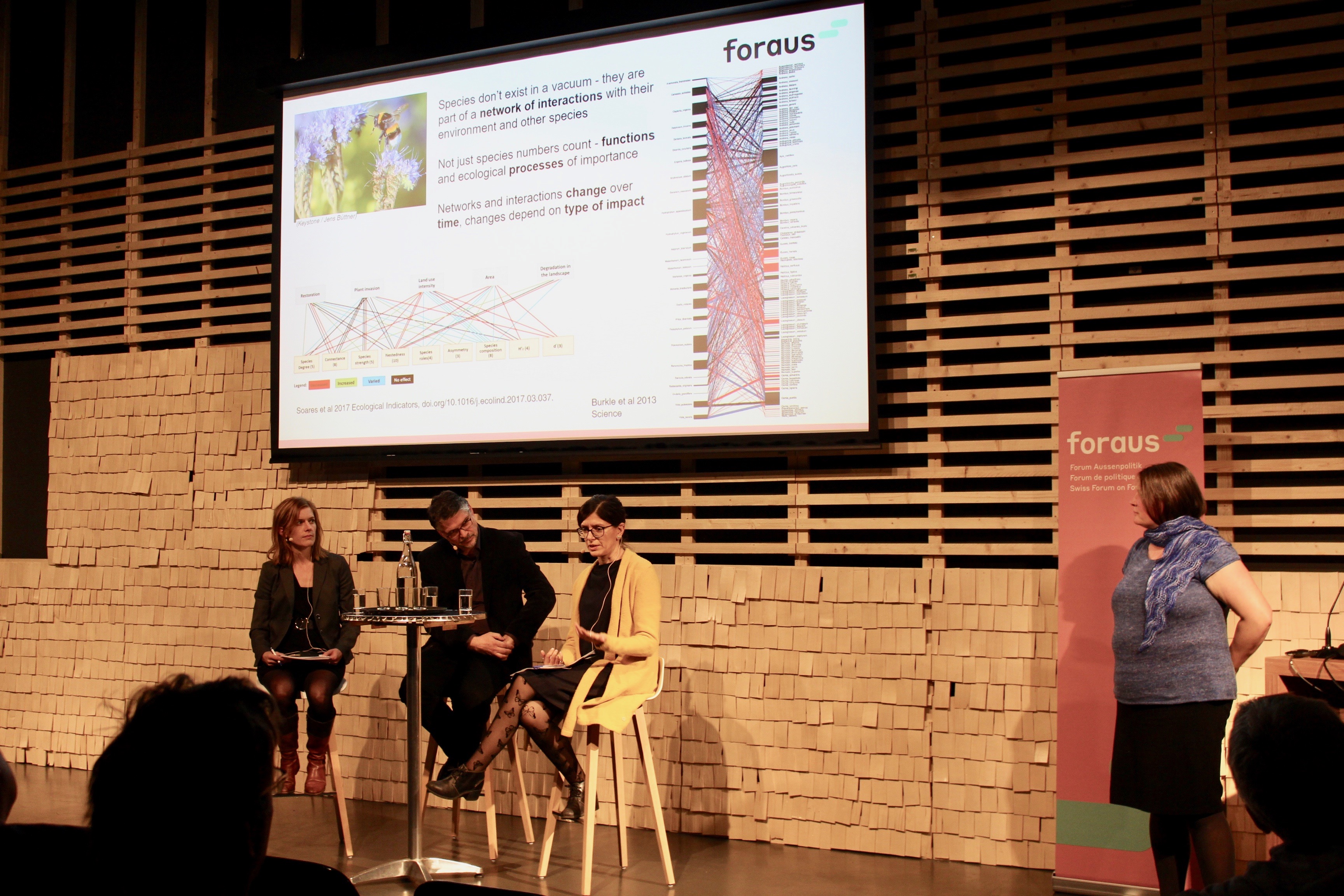We are proud to announce that our pilot challenge on Biodiversity has been completed! The final results have been published in the policy recipe «Grassroots ideas to halt biodiversity loss: Addressing an upcoming crisis», so have a look and enjoy!

In the paper, there are four innovative ideas that are proposed to combat the global loss of biodiversity. First, the recognition of nature as an independent legal entity in order to strengthen its protection at the legal level. Secondly, the development of an indicator called "Bee Equivalent" to make biodiversity loss easier to understand. Thirdly, the introduction of customs duties on trade goods, whereby the amount of the levy varies according to the biodiversity friendliness of the goods. Their revenues are earmarked for a specific purpose and refunded to the country of origin of the goods. Lastly, the scaling and expansion of the concept of partner protected areas, which is conducive to both financial support and the exchange of expertise.
In 1992, the international community agreed on the UN Convention on Biological Diversity (CBD). With more than 196 member states it is one of the broadest international conventions. Nevertheless, effective measures to ensure biodiversity protection are still dramatically lacking: In 2014, the vast majority of the countries have not achieved any of the Aichi-goals, the 20 tangible targets to be fulfilled by 2020. How should governance institutions on an international level be improved to effectively protect biodiversity?
Co-author Simona Kobel presenting the idea «Nature as legal entity» at the Alpine Museum, Berne (6 November 2019)
Biodiversity loss is largely linked to production and consumption patterns in a globalized economy. For instance, palm oil production, monoculture-based agriculture and deforestation of rainforests have been shown to be largely detrimental to ecosystems and species diversity. Assessing the impact of trade commodities over their whole life-cycle is often hindered by insufficient data and a lack of transparency. What solutions are there in the area of international trade agreements as well as national policies relevant to international trade and its impact on biodiversity? What could be done regarding the impact of trade in general or in specific areas such as agriculture or mining?
Author Thomas Wirth presenting the idea «Differentiated tariffs depending on biodiversity conservation» at the Alpine Museum
Biodiversity conservation is directly addressed in 3 of the 17 UN Sustainable Development Goals. Without biodiversity, there can be no sustainable development because healthy ecosystems also support the achievement of human development and help secure human health improvements, livelihoods, food and energy security over the long term. However, while most international aid agencies have incorporated policies targeting biodiversity outcomes into their development partnership activities, short-term human development progress is driven by other, more visible factors like intensive food production, economic growth or market and infrastructure development. How can human development be achieved without sacrificing biodiversity at the same time? Authors Philippe Brunet and Oliver Graf write about «Twinning conservation areas» in the newly published paper as a means to achieve human development without sacrificing biodiversity.
After the authors presented their ideas to an audience of stakeholders, concise feedback was given by our panelists Norbert Bärlocher, Head of Section for the Rio-Conventions at the Federal Office for the Environment, Giulietta Duyck, Senior Manager International Policy at WWF Switzerland and Prof. Maria Santos in Earth System Science at the University of Zurich.

Panelist Prof. Maria Santos reacts to the idea «the Bee Equivalent» by author Cornelia Krug.
The evening ended with animated discussions among the visitors and presenters at the delicious aperitif which was provided by the Alpine Museum.
Norbert Bärlocher, Head of Section for the Rio-Conventions at the Federal Office for the Environment, wearing the Policy Kitchen apron.
We would like to thank all participants in the challenge greatly, as well as our partners at Bosch Alumni Network and Polis180.
We are also grateful for the support of our experts: Dr. Florence Bétrisey (Junior Lecturer, University of Lausanne), Dr. Elisabeth Bürgi (Senior Research Scientist Sustainability Governance Cluster, University of Bern), Giulietta Duyck (Senior Manager International Policy, WWF Switzerland), Manuel Flury (Co-Head Global Programme Food Security, Swiss Agency for Development and Cooperation (SDC), Mark Halle (Senior Fellow, International Institute for Sustainable Development (IISD)), Dr. Maria Joao Santos(Professor of Earth System Science, University of Zurich (UZH)), Frederic Perron-Welch, (Legal Research Fellow, Centre of Sustainable Development Law), Hubertus Schmidtke (Managing Director, Forest Stewardship Council (FSC), Switzerland) Benjamin Simmons, (Founding Head, Green Growth Knowledge Platform), Ricarda Steinbrecher (Co-Director, Econexus), Vivian Valencia (Postdoctoral Research Fellow, Wageningen University) and Silvia Zingg (Lecturer, Bern University of Applied Sciences).
Finally, we'd like to thank Engagement Migros for supporting Policy Kitchen.
